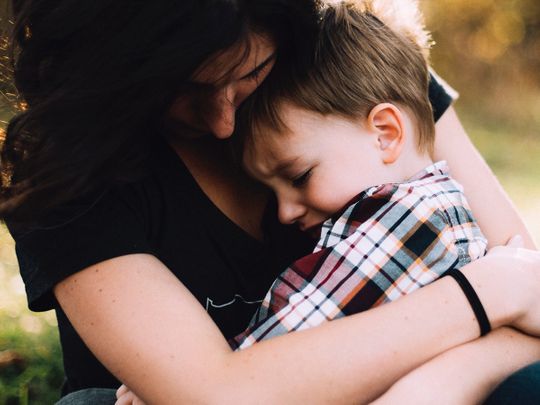
Parents are used to juggling all the different spheres of their lives, while trying to make sure their children are thriving. But it’s not an easy task, and sometimes, it causes so much stress, parents can find themselves heading towards depression and exhaustion.
So, what do you do when you find yourself spiralling? Well, in Germany, you’d go to a ‘Kur’ – a health retreat made specifically for burnt-out parents.
Click start to play today’s Spell It, where we discover how Germans extend their support to parents who are not doing ‘fine’.
Germany is likely the only country in the world where struggling parents are legally entitled to a Kur; parents can head to a health retreat for about three weeks, every four years. According to a March 2023 report in the UK-based news website BBC Future, a Kur is commonly prescribed by a doctor, and primarily funded by insurance. Most significantly, it’s seen as a preventative measure to stop mild problems from expanding into worse ones.
Here's how it works. When one or both parents check into a clinic, they are assessed and then asked to follow a plan of tailored activities and therapies, such as talking therapy, or physical exercise. Their children, meanwhile, are taken care of by the trained staff – they address any mental health issues the children may have, and supervise all meals and cleaning. In the afternoons, the parents and children spend time together.
The idea is – and always has been – to provide support to parents who find themselves burning out. After the Second World War, the wife of Germany’s then-president, Elly Heuss-Knapp, founded Müttergenesungswerk, a non-profit organisation that still runs some 70 clinics offering retreats all over Germany. She initially came up with the idea to support exhausted mothers, who were suffering from the effects of war and malnourishment, while having to care for traumatised children and husbands.
Today, mums and dads are facing a different kind of stress that’s increasingly appearing around the world – parental burnout. According to an August 2019 study in the US-based journal Clinical Psychological Science, this is a state where parents experience “overwhelming exhaustion in their parental role, an emotional distancing from their children, and a sense of parental ineffectiveness”. It raises the risk of child neglect and violence against children, along with adult depression and distress.
Studies have found that the problem became worse with the COVID-19 pandemic and lockdowns, since many caregivers struggled with no support. Parents in Germany were arriving at the retreat in a much worse state than they should have been, where it was necessary to offer treatment, not prevention. According to the BBC report, the most common problems they faced were psychological issues, like anxiety, insomnia, depressive symptoms, along with physical issues like knee or back pain.
While Kurs aren’t a magical remedy for all the problems parents face, they have been shown to have a strong positive impact, with lasting results. For instance, a 2014 study in the German journal Psychosoziale und Medizinische Rehabilitation, found that physical problems such as back pain improved for up to nine months after the retreat, especially if parents continued the therapies and exercises that were offered to them. Children were also seen to have a range of benefits across skin, respiratory and behavioural problems.
More importantly, Kurs give parents a safe place to press pause on their spiralling lives and regain a solid foothold on the things that mattered most, like family and mental health.
Do you think more places around the world should establish such health retreats for parents? Play today’s Spell It and tell us at games@gulfnews.com.







